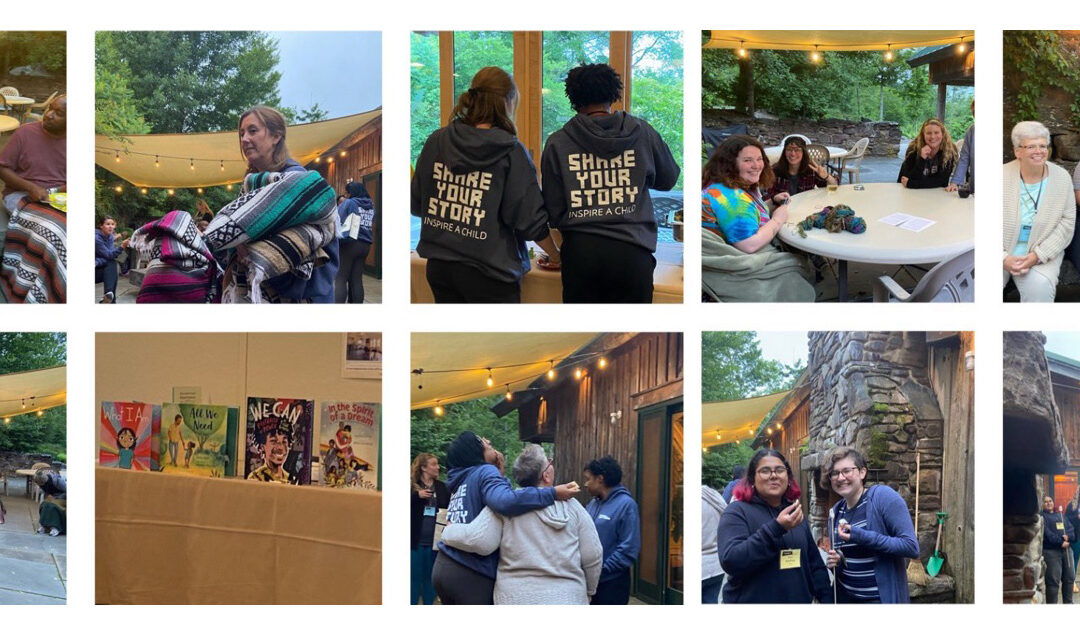Tymisha Sweet, RAR Senior Manager, Program and Affiliate Relations, recently attended Viewing Children’s Books Through an Intersectional Lens thanks to the Highlights Foundation.
VIEWING CHILDREN’S BOOKS THROUGH AN INTERSECTIONAL LENS
Guest author: Tymisha Sweet, RAR Senior Manager, Program and Affiliate Relations on a workshop she recently attended: Viewing Children’s Books Through an Intersectional Lens thanks to the Highlights Foundation.
I had the opportunity of joining children’s book educators, researchers, scholars, and storytellers: Dr. Laura M. Jiménez, Franki Sibberson, Clare Landrigan, Lynsey Burkins, and Grace Lin to develop the skills needed to analyze children’s books for meaningful representation, reader engagement, visual literacy, and more!
The entire workshop was amazing and really deepened my understanding on how to provide an equitable and inclusive approach when curating our book collection and book audit.
All children and families need and deserve to see themselves and people that look like them represented in the books they read. And it is our duty to provide culturally authentic mirrors and window books.
I learned that the most common ethnicity among authors is White, which makes up 79.4% of all authors. Comparatively, there are 7.2% of the Hispanic or Latino ethnicity and 5.8% of the Black or African American ethnicity.
We have some work to do if we want to ensure representation by authors, for children and their families.
I learned a more discerning approach when looking at children’s books for the betterment of our families. With this new approach I will analyze illustrations, text, and author backgrounds to ensure books are meeting the needs of our families. Visual and verbal messages families see in books influence their ideas about themselves and others. It is very important to put on that instructional lens to ensure families can connect with books personally.
The workshop section led by Clare, Disrupting Nostalgia in Children’s Literature for the Classroom, was an eye opener.
In this workshop, we reviewed several favorite children’s books that we grew up loving to read with our new approach. We found that some of these nostalgic books can be problematic in a classroom, and they do not necessarily meet the needs for children today.
It is our priority to take a critical look and provide families with the best options and not the enjoyment of our past.
I am excited to put what I’ve learned to use as we continue to prioritize our book audit and our commitment to equity and inclusion across our work at Raising A Reader.

